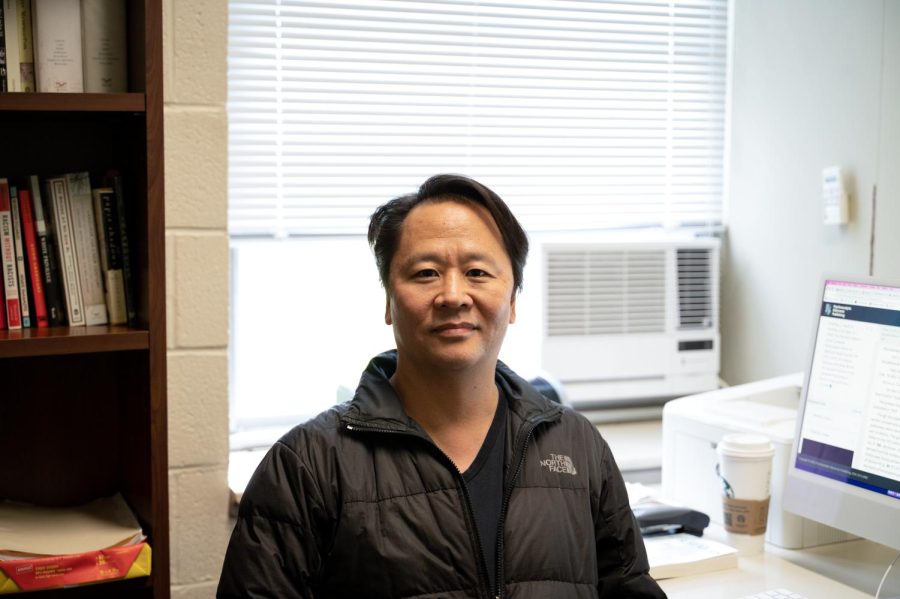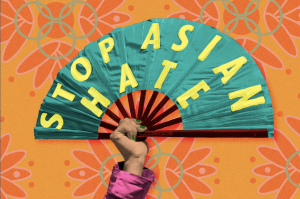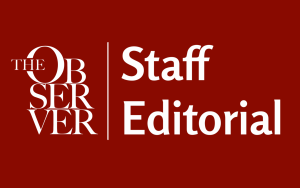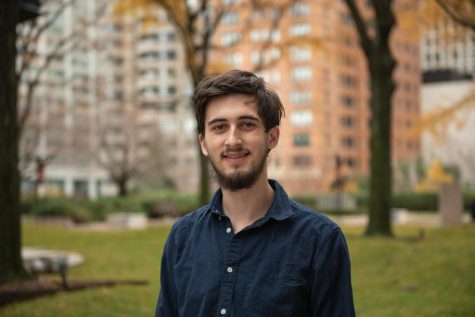Fordham Launches Asian American Studies Program
The new course of study draws upon various departments and disciplines to encourage cross-racial conversations, alliances, projects and initiatives
Kim developed Asian American studies alongside Sohn in response to a rise in anti-Asian violence
May 3, 2023
Following a two-year long effort, Fordham College at Lincoln Center (FCLC) announced the creation of the Asian American studies (AAST) program on April 3. The program offers students a variety of courses across different disciplines relating to Asian American issues.
James Kim, associate professor of English and comparative literature, and Stephen Hong Sohn, professor of English and Thomas F.X. and Theresa Mullarkey chair in literature, were the co-directors of the program and called for its creation among other members of the Asian American studies working group.
The efforts to create an AAST program at Fordham gained momentum amid a rise in anti-Asian violence during the COVID-19 pandemic. Asian American faculty mobilized following the fatal shootings of eight people, including six Asian women, in Atlanta in March 2021 to create a program that would educate the Fordham community on issues affecting the Asian American community. A petition for an AAST program was created by Kim and the petition quickly gained traction, garnering over 1,400 members of the Fordham community.
After two years, the minor in AAST was finally approved by the Dean’s Council in the fall of 2022 and was cleared to begin its programming this spring for the upcoming 2023-24 academic year.
“So many students signed the petition for Asian American studies and expressed such strong support for the initiative,” Kim said. “It really energized us to see their enthusiasm.”
The co-directors decided to launch the effort to create the AAST minor when asked to educate the Fordham community on anti-Asian racism and provide a safe space for Asian American faculty, students and staff.
“We can’t just respond in times of crises,” Sohn said. “We need a structure that is already in place so that if bad things happen, then we can rally around it with the resources that we already have in place.”
Kim felt that there was a strong contrast between the reception of the petition circulated during the spring of 2021 and the support for AAST when he first began working at the university in 2004. He points to the political changes and new generations of students as reasons for this change, as well as the development of a university community that’s more receptive and invested in the idea of building AAST.
“It’s been a special honor to work with other members of the faculty working group, many of whom took on the monumental task of training themselves in Asian American studies so that they can design and teach credible courses in the field.” James Kim, associate professor of English and comparative literature
Following the overwhelming advocacy shown in the 2021 petition for AAST, the program also received support from the Fordham administration. Both Kim and Sohn began applying for internal funding from the university and won funds from the Deans’ Faculty Challenge Grant and the Teaching Race Across the Curriculum Grant in the amounts of $10,000 and $15,000, respectively.
The funds allowed them to form the Asian American studies working group, composed of professors across different disciplines and departments of the university, to begin training faculty to teach AAST.
“It’s been a special honor to work with other members of the faculty working group, many of whom took on the monumental task of training themselves in Asian American studies so that they can design and teach credible courses in the field,” Kim said.
After two years, the minor in AAST was finally approved by the Dean’s Council in the fall of 2022 and was cleared to begin its programming this spring for the upcoming 2023-24 academic year. It will be led by Sohn and Caitlin Beach, assistant professor of art history, while Kim pursues a research sabbatical.
Beach noted that she believes this is a celebratory moment to reflect with students and members of the Fordham community about what the future of Asian American studies will be composed of in the following years.
“I think it will be an exciting chance to build this program together with this broader community at the university,” Beach said.
The official launch of the program was met with excitement by students who have been awaiting the program’s launch, some of whom wish they could have taken part in it during their time as undergraduates at the university.
The AAST program is built upon the foundation of solidarity between individuals and communities of different races.
Shan Rao, FCLC ’22, who majored in English while at Fordham and a former student of Sohn’s, was interested in the creation and development of the Asian American Studies minor prior to graduating. said that she wished she could have participated in the program during her time as an undergraduate but applauds the opportunity now made available to others.
“I’m happy to know that future students will now have a wider range of Asian American related courses available to them and be more easily able to find the courses that already exist,” she said.
Yeenon Yu, FCLC ’23 and a major in English with a minor in African and African American studies, also expressed regret at not being able to participate in the minor before her upcoming graduation but said she is excited about the program’s inception.
“I hope that there is more inclusivity and more understanding of how important it is to learn about Asian American studies,” she said.
According to Kim, the AAST program is built upon the foundation of solidarity between individuals and communities of different races. He said he hopes that the minor will encourage cross-racial conversations, alliances, projects and initiatives to take place among students and faculty. In line with its goal of coalition building, the minor requires students to take at least one course in either the African and African American studies department or the Latin American and Latinx studies program.
“We want our Asian American studies students to be thinking about Asian racialization in relational terms,” he said. “You can’t understand Asian racialization in the contemporary United States in isolation.”
Sohn connected the aim of race and ethnic studies to the university’s cura personalis values, which stress caring for the whole person. The faculty behind the AAST program said that they encourage interested students to enroll in one of its course offerings in the upcoming 2023-24 academic year.
















